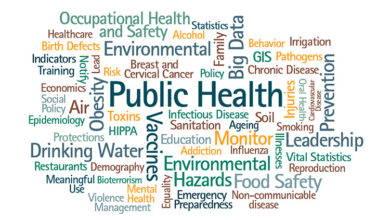Progress and Challenges: Zimbabwe’s Health Care Reforms since 2018

In recent years, Zimbabwe has made significant efforts to reform its healthcare system. With aiming to enhance accessibility and quality of healthcare services for its populace being top priority. Therefore, this article delves into the progress underway in Zimbabwe’s healthcare reforms from 2018. It will address the challenges along the way. Insights from experts and stakeholders will provide valuable perspectives on the effectiveness of these reforms.
Progress in Healthcare Reforms:
1. Strengthening Primary Healthcare:
Firstly, Zimbabwe has placed a strong emphasis on bolstering primary healthcare services. Investments in infrastructure have resulted in improved accessibility, with approximately 85% of the population now able to access healthcare facilities within one hour’s travel time. Additionally, this progress is bringing healthcare closer to the people and improving their overall well-being. Also, the rural areas are included in this.
2. Enhanced Investment:
Also, the government’s commitment to healthcare reforms has been evident through increased investment. Budgetary allocations for healthcare have been augmented over the years. Although the target of allocating 15% of the national budget to healthcare is yet to be achieved, progress has been made in gradually increasing health expenditure. This increased investment is vital for providing adequate resources and infrastructure to support healthcare services.
3. Strengthened Partnerships:
Additionally, Zimbabwe’s healthcare reforms have benefited from collaboration with donor organisations and the private sector. Donor funding has provided additional resources to support the reforms, while partnerships with private sector companies have contributed to improved healthcare provision. Also, these partnerships have been crucial in bridging gaps and addressing healthcare challenges.
Challenges in Healthcare Reforms:
1. Human Resource Shortages:
Secondly, Zimbabwe continues to face challenges in retaining healthcare professionals due to low remuneration and unfavourable working conditions. This brain drain poses a significant challenge to healthcare service delivery and impacts the quality of care. Therefore, addressing this challenge requires comprehensive strategies to improve working conditions and incentivise healthcare professionals to stay within the country.
2. Infrastructure and Equipment deficiencies:
Moreso, shortages of medical equipment and inadequate infrastructure persist in Zimbabwe’s healthcare system. Insufficient funding and maintenance contribute to these challenges, hindering the delivery of quality healthcare services. Moreover, alleviating these deficiencies necessitates increased investments and effective resource management.
3. Access to Healthcare:
Furthermore, while progress has been made in strengthening primary healthcare services, access to healthcare remains a challenge, particularly for those in rural areas. Furthermore, the government is working to address this issue by restructuring the health delivery system and implementing policies to ensure equitable access for all citizens.
Insights from Experts and Stakeholders:
1. Political and Economic Factors:
Thirdly, experts highlight the vital role political and economic factors play in shaping healthcare reforms. Political stability, policy consistency and economic growth are key factors that influence the success and sustainability of healthcare reform initiatives. Understanding these dynamics fosters effective reform strategies.
2. Strengthening Primary Healthcare:
Stakeholders emphasise the importance of further strengthening primary healthcare services to improve healthcare access and preventative care. This approach allows for early detection of health issues and reduces the burden on secondary and tertiary healthcare facilities.
3. Partnership and Collaboration:
Experts stress the significance of fostering partnerships between the public and private healthcare sectors, as well as engaging key stakeholders, to drive healthcare reform. Collaborative efforts can bring together diverse perspectives, resources and expertise, leading to more effective and sustainable reforms.
Conclusion:
In conclusion, Zimbabwe’s healthcare reforms since 2018 have made considerable progress in strengthening primary healthcare, increasing investment, and fostering partnerships. However, challenges such as human resource shortages, infrastructure deficiencies, and limited access to healthcare services remain. Incorporating insights from experts and stakeholders is essential for sustainable healthcare reform. Therefore, by addressing these challenges and leveraging partnerships, Zimbabwe can continue its journey towards a more accessible and robust healthcare system for all its citizens.





